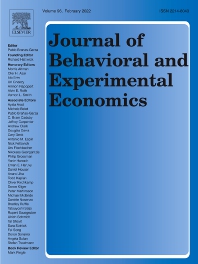Does risk sorting explain overpricing in experimental asset markets?

Hubert J. Kiss, László Á. Kóczy, Ágnes Pintér, Balázs R. Sziklai
Highlights
Filtering out risk-averse investors is practiced widely in Europe.
We sort subjects into markets by risk attitude and test its effect on overpricing.
Markets with the most risk tolerant traders exhibit larger overpricing.
The effect is linear if we consider excess buy prices.
Not every overpricing is a bubble.
Abstract
Sorting according to the gender or cognitive abilities of the traders has been investigated as a potential source of overpricing in asset markets. Here we study if sorting according to risk attitudes matters, motivated by the fact that filtering out risk-averse investors is practiced widely in Europe and is in line with the Markets in Financial Instruments Directive (MiFID) of the EU.
Despite the central role of risk attitude in the literature, our study is the first that sorts participants into markets by risk tolerance and tests its effect on overpricing. We show that risk sorting can explain overpricing only partially: Markets with the most risk-tolerant traders exhibit larger overpricing than markets with the most risk-averse traders. In our study, risk aversion does not correlate with gender or cognitive abilities, bringing in an additional factor to understand overpricing.
Keywords: Asset market, Overpricing, Experiment, Risk sorting, MiFID


